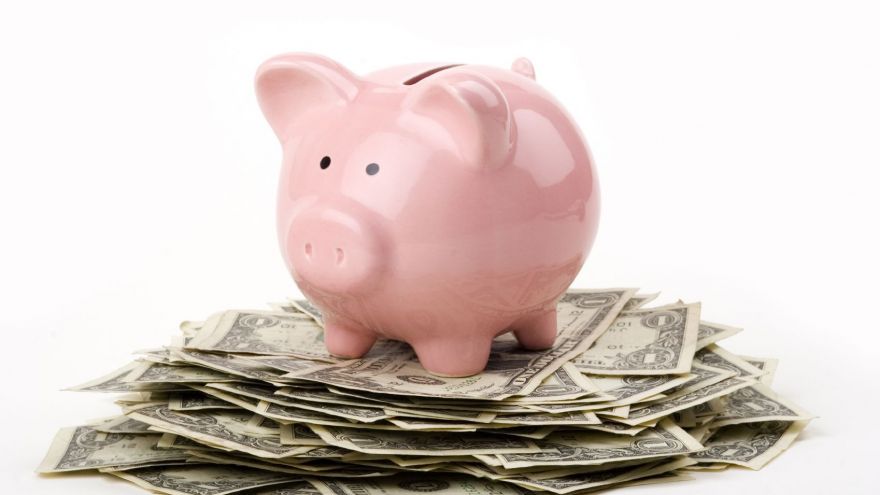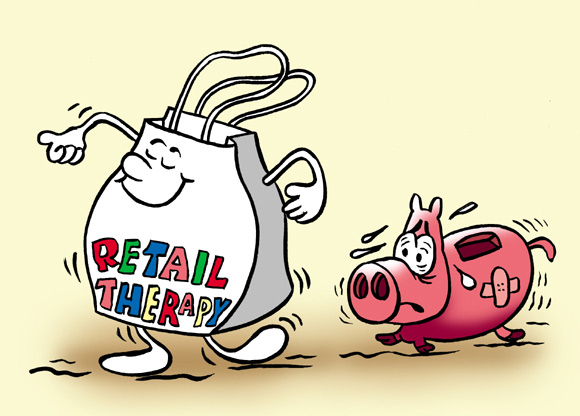Real Money Saving Tips for Students & Graduates!

The title of student and the idea of saving money are two things that you typically don’t hear in the same sentence, and for good reason as the cost of post-secondary schooling is skyrocketing around the world, especially in North America. With that being said, it doesn’t necessarily mean that there aren’t specific ways that you can put a little bit of money aside to help you pay off more of your debt once you graduate or to take a great trip with your friends once you have your degree or diploma in-hand. Below are some unique tips and tricks to help students save money that you might not already know.
1. Renting vs. Buying Textbooks
The majority of students are aware that they can easily buy used textbooks instead of opting for new ones, but did you know that you could also rent them? Renting is substantially less expensive than having to buy a new or used textbook, and it can certainly help you to save thousands of dollars over the long run. The only downfall to renting is that you won’t own the textbook at the end of the semester.
On the other end of the spectrum, you can always purchase a used textbook and use it to your heart’s content over the years. But, it can also give you a return on your investment as you can turn around and sell the textbook at the end of the semester, getting all, if not more, of your money back. This may be preferable depending on the popularity of your course and the book’s demand as you won’t lose money by renting, however, you need to have the upfront cash to purchase the used book.
2. Avoid Impulse Buying
It can be incredibly easy to head out on the weekend with your friends and face the temptation of spending an extra $10 on a lavish meal or to buy a pair of comfy pajamas that your friends are all buying. The most important thing to remember is that you will certainly need that money at some point in time for something more important than a better meal or sleepwear.

When you find that you’re prone to impulse buying, your best bet is to leave your cards at home and give yourself a cash budget of what you can afford to buy while you’re out and about with your friends. Even though it might be tough to not spend as much as everyone else, at the end of the day, you’ll have more money in savings that you can allocate to more important purchases.
3. Try to Cut Vices
Drinking and smoking are two habits that can quickly turn from fun to costly, especially if you’re the type of person that smokes regularly or likes to party every weekend. Not only that, but these vices are also incredibly hazardous for your overall health and the last thing you’ll want is to graduate with a money-gobbling addiction that you can’t kick. It’s always better to cut back on extra costs, especially when you factor in that a single pack of cigarettes can cost anywhere from $7 to $13, depending on where you live and the type of smokes you enjoy.
4. Pay Bills on Time
Even though it might seem impossible to manage your money to where you can pay your bills on time, you can guarantee that making sure all of your debts are taken care of is what’s going to help you to save an abundance of money at the end of the year. Imagine every time you’re late with a payment, you’re faced with a $20-$50 late fee. Over three months, you’re losing up to $150 simply because you forgot to put money into your account or you weren’t able to not buy that pack of beer over the weekend for a few hours of entertainment.
5. Get Rid of Credit Card Debt
Above all else, the number one thing that you should be focusing on is paying off credit card debt. Although credit cards are incredibly convenient, they also give you the illusion that you’re spending money that’s readily available, even though you certainly don’t own it. In order for banks to make money off their customers, every credit card has an interest charge based on your outstanding balance and this is an extra amount of money that you lose every month.

The higher the balance on your credit card, the more you’re paying into interest, and over time, you’re going to find that a $4000 credit card debt will quickly turn into $5000 or more. The faster you can pay down your balance, the less interest you’ll be paying and more of your money will be going onto the principal balance.
6. Public Transportation and Walking is Key
Although the idea of having a car and complete independence may seem nice, it’s also another cost that you’re going to be faced with every month. Even if your car is completely paid off, you’re still going to need to deal with gas and insurance for your own personal errands. You can also guarantee that if you’re the only one of your friends with a vehicle, you’re going to be tempted to drive friends around as well, which only increases your gas costs.
Instead, opt for a bus pass or even walk because it’s going to save you hundreds of dollars per month. In today’s day and age, the vast majority of colleges and universities have great bus routes from major transportation hubs that help to make it substantially easier to get wherever you need to go for a maximum of $4 per trip. Not to mention, if you buy a pass you’ll be getting an overall discount on all of the trips you take every month.
The main premise behind being able to save money as a student doesn’t necessarily revolve around finding a good paying job while you’re studying, although that would be beneficial. It mostly focuses on learning how to cut back on your daily costs to help you have more money at the end of each week. By working on these six great money saving tips, you can guarantee that you’ll have more money to put on your debts so you can live a more comfortable lifestyle once you graduate.
Pin for later

